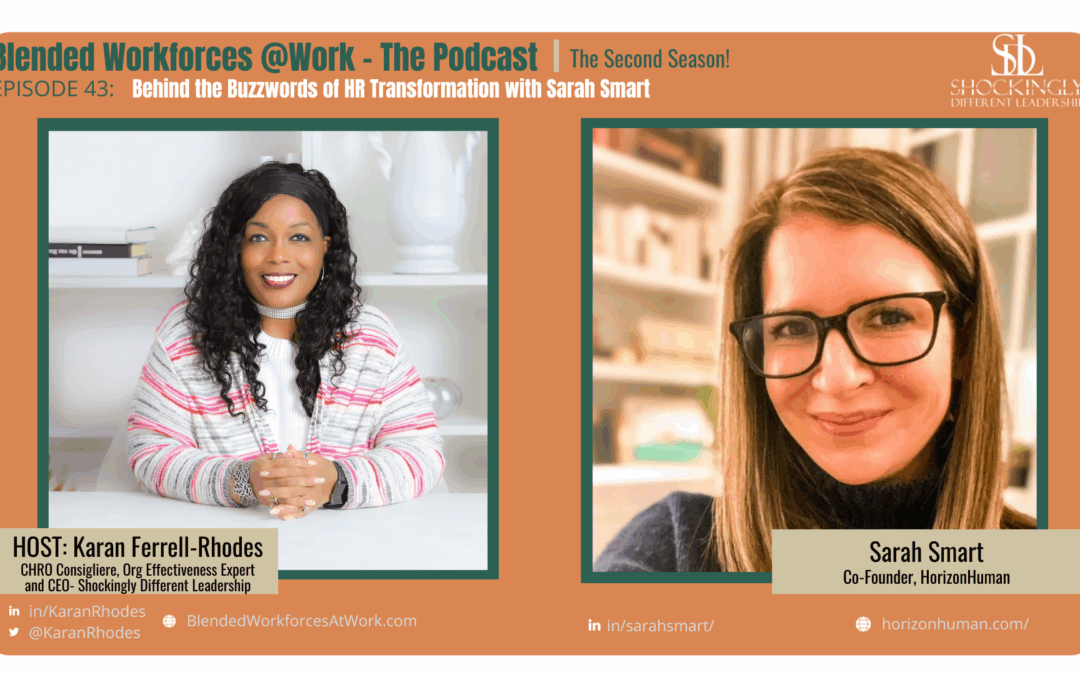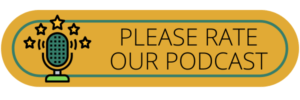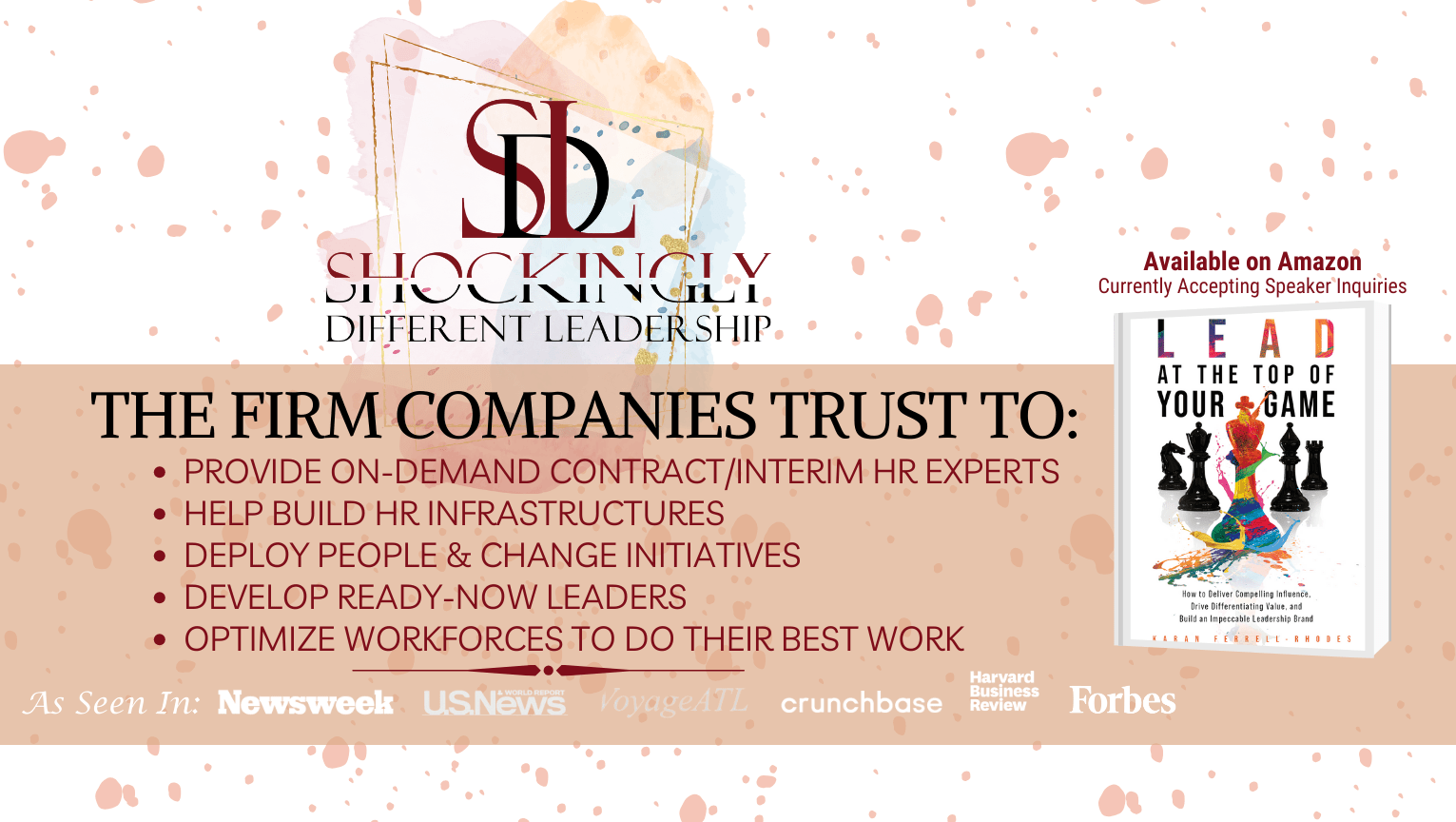IN THIS EPISODE, KARAN FERRELL-RHODES INTERVIEWS SARAH SMART.
In this conversation, Sarah discusses how emerging technologies and evolving business needs reshape HR. She emphasizes the critical role of AI literacy, user-centered design, and strategic decision-making in successful HR tech adoption. Furthermore, she explores common implementation pitfalls, such as overlooking user experience, and highlights the value of a design thinking approach. Looking ahead, Sarah foresees a rise in tech-savvy CHROs, agentic AI, and blended workforces.
Sarah Smart is the co-founder of HorizonHuman and leads initiatives in HR transformation and AI-driven talent strategies.
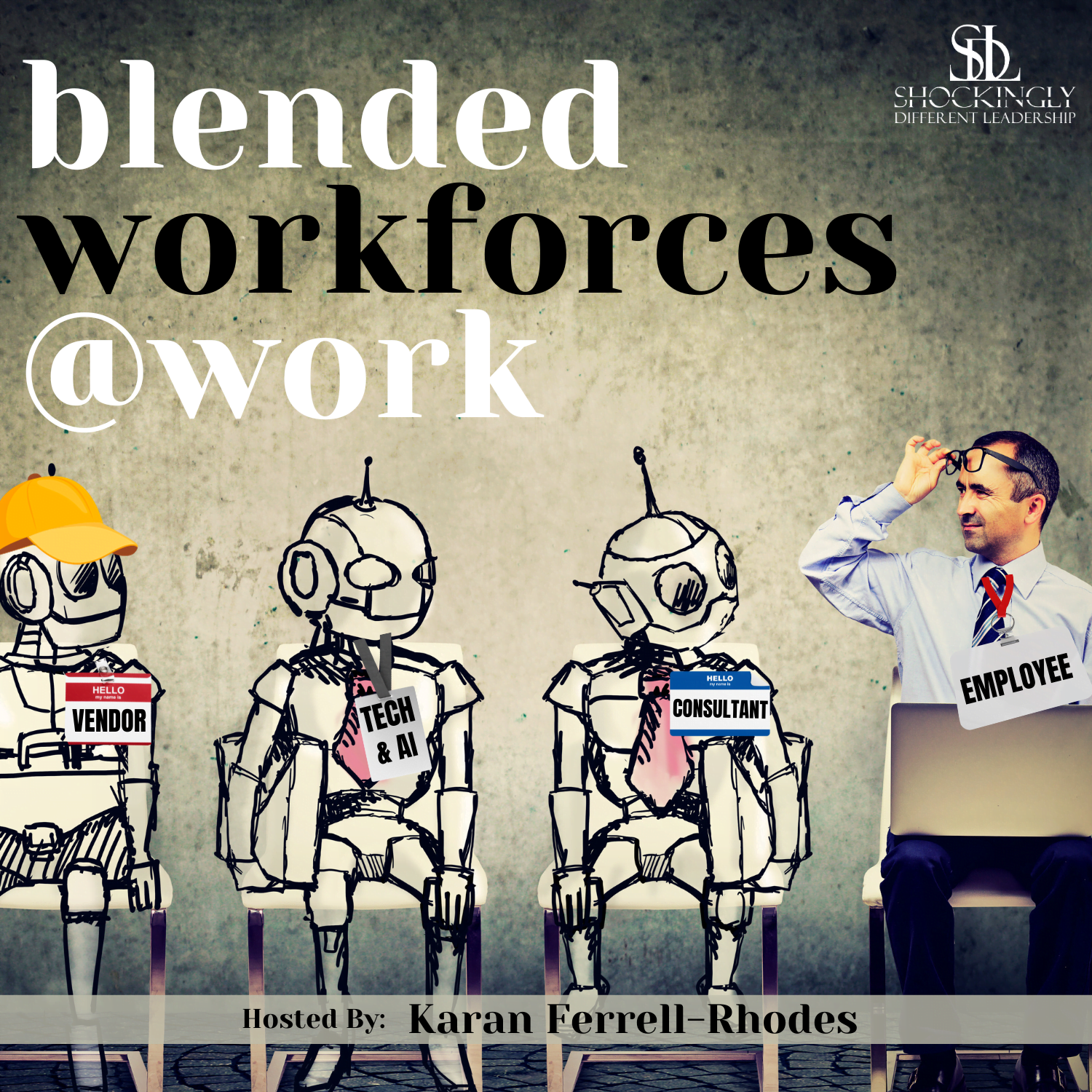
Posted by
SDL Media Team
Rather view our video podcast?

WHAT TO LISTEN FOR:
- What challenges do HR teams face when adopting new technologies?
- How can AI help improve HR processes?
- What is the importance of user experience in HR tech implementation?
- Why should companies define KPIs before using new technology?
- What are some common mistakes in HR tech implementation?
- Why is strategic decision-making critical in leadership?
- How can leaders learn from their mistakes?
“Define your KPI’s before any tech implementation.”
FEATURED TIMESTAMPS:
[03:44] Sarah’s Professional Journey and Co-Founding Horizon Human
[07:08] Horizon Human’s Approach to HR Transformation
[14:05] Challenges and Best Practices in HR Tech Implementation
[18:59] Signature Segment: Sarah’s entry into the LATTOYG Playbook: Future Trends in HR Transformation
[25:05] Signature Segment: Sarah’s LATTOYG Tactic of Choice: Leading with Strategic Decision Making
[27:33] Contact Information

ABOUT SARAH SMART:
Sarah Smart is a talent acquisition, HR tech, and workforce transformation leader with over 20 years of experience at companies like Hilton, Accenture, and JPMorgan Chase. She co-founded HorizonHuman, focusing on HR transformation and AI/Automation solutions to enhance talent strategies.
She has led AI-driven recruitment initiatives, HRMS implementations, and process innovations. Most recently, she managed Talent Acquisition Products at JPMorgan Chase, overseeing strategic hiring and AI-powered solutions, and led the Chase Recruiting Organization.
Previously, Sarah led Hilton’s global recruiting during rapid growth and served as Associate Director of Global Leadership Recruitment at Accenture, managing a team of 40+ recruiters. She holds a master’s in Organizational Behavior from Columbia and is an active board member of St. John’s College. As a member of the Human Centric AI Council and a frequent speaker, she is recognized for her expertise in AI-driven HR and workforce transformation.
LINKS FOR SARAH:
- Website: horizonhuman.com/
- LinkedIn: linkedin.com/in/sarahsmart/
ADDITIONAL RESOURCES FOR YOU:


Episode Sponsor
SDL is the go-to firm companies trust when needing to:
- supplement their in-house HR teams with contract or interim HR experts
- implement leadership development programs that demonstrate an immediate ROI and impact on the business

Episode 43 | Behind the Buzzwords of HR Transformation with Sarah Smart
Sarah Smart 00:01
So we’ll start with the trends. About five years ago, everyone was implementing a large scale ERP, everyone moved to the cloud. It was an exciting time. We thought, boom, that was a transformation that was going to stick. And it was going to be sort of, yes, there was going to be iteration and growth from there. But that was it. And then all of a sudden, three years later, it’s followed on the heels by AI is now transforming HR, and, you know, dirty little secret, AI has been in HR for probably the past decade and a half, really
Karan Rhodes 00:01
Blended workforces are one of the hottest talent strategies today, where employers are using a mix of traditional employees with external resources like independent contractors, coaches, consultants, vendors, and technology solutions, all in order to enhance competitiveness, ensure cost flexibility, and expedite business goals. But how are the successful companies infusing blended workforces into their business strategy? And what are the critical success factors and pitfalls to avoid during implementation? And on the flip side, what does it really take for suppliers to improve their chances of finding and landing contract opportunities? The devil is in the details, my friends! I’m your host, Karan Ferrell Rhodes, and it’s time to get smarter about Blended Workforces at Work!Hello, my superstars. This is Karan, and welcome to another episode of the blended workforces at work podcast. We are super excited to have on today’s show Sarah smart, who is the co founder of HorizonHuman, which is a company where she and her team works to design and lead HR transformation initiatives. But what’s very unique about them is they leverage their expertise in evaluating AI intelligence and automation to really help supplement talent strategies and organizational effectiveness. So that is definitely a mouthful, and we’ll get deeper into what Sarah and her team does in just a moment, but we would first love to welcome Sarah to the show. So welcome Sarah.
Sarah Smart 01:36
Thank you so much for having me.
Karan Rhodes 01:38
Oh, this is awesome. We’re just super excited to have you, as I mentioned, and I am just fascinated about how companies are leveraging technology to get work done or make decisions about their workforce and including transformation initiatives. So I know we only have 30 minutes, but I could sit and talk for weeks with you about this
Sarah Smart 02:00
Awesome looking forward to it
Karan Rhodes 02:02
Absolutely same here now, before we delve in to our conversation and deeply, we always love to learn just a tad bit about our guests. So for just as much as you feel comfortable, would you mind giving us a sneak peek into your life outside of work?
Sarah Smart 02:18
Sure, of course. And I love this question. My life outside of work is my family. It’s work or family. There is, there is no skydiving hobby in between. I have an 18 year old boy and a 12 year old girl and a very active four year old dog in this house, and they are my life, and I love hanging out with them.
Karan Rhodes 02:37
Oh, that is amazing. Well, we have a lot in common with kids, and love for dogs and activity and family is definitely top of my list as well. So love that we’re recent empty nesters, so I will say there’s light at the end of the tunnel, but enjoy them as they’re continuing to grow up and experience life.
Sarah Smart 02:59
We will. We will.
Karan Rhodes 03:01
Awesome. Well, let’s go ahead and jump into our conversation. Sarah and I would love to first start off, if you don’t mind, if you just share a couple of milestones of your professional career, and then what led you to co founding HorizonHuman?
Sarah Smart 03:17
Sure, I’ve had a varied career, and the milestones are sort of pivot points in my career. So I will say that I don’t know many people that wake up and think that they’re going to go into recruiting or technology or talent acquisition or that they went to school for it. There are certainly some. But that was not me. And so I spent my early career in advertising, and my first pivot point was being asked to join an executive recruiting firm very early in my career to recruit for advertising executives and media executives straight out of working in project management in advertising, and I fell in love with it. I fell in love with connecting people to opportunities. I love talking to people and hearing their stories and helping to connect them to better stories that could further their life. So absolutely fell in love with it, and then I was very fortunate to be introduced to one of my mentors, Dr Dana Ardee. I just had an hour long conversation with her yesterday, and this was more than 25 years ago, and she worked for a company called flatiron partners, which was a venture capital company, and she invited me to join as her search associate, and she was an executive search partner firm, staffing room. Staffing is sort of the wrong word, but really building the teams for all the venture backed companies, sure that for several years, and did that with her in a variety of different companies. And then I went into executive search briefly. I missed the team environment. Executive Search can sometimes be a lonely sport, and so when I had the opportunity to go back in house, I actually took the opportunity, first to build an executive search teams at Freddie Mac and then later at Hilton. Had the fortunate opportunity at Hilton to actually grow my career there for almost a decade and become their global head of recruiting for the organization. Conversation the pandemic hit. That was another pivot point. Hospitality, of course, was flattened, and there was not really an opportunity for me to remain at Hilton. So I joined JP Morgan Chase first to run the chase talent acquisition function, which is about half, 50% of the talent acquisition organization, or was at the time, and then moved into a global product role at JPMorgan Chase, running all of their Talent Acquisition, Technology business processes and transformation, amazing. And then, and when they got to horizon, human to sort of like the next big pivot point. I’d always dreamed of starting my own company and creating a new way of working and living for myself, for people that work with me. I’d always dreamed of transferring my subject matter expertise into the ability to help other people learn my lessons without having to learn them the hard way. And we’ve been very successful. It’s a year in we have enjoyed every single moment of it.
Karan Rhodes 05:54
Oh, amazing. Well, similar. Watch your shoes as well. After 14 year career at Microsoft, had some of the same feelings. Wanted to share the expertise outside the four walls, although I will forever be a Microsoft fan for all the opportunities they gave, but starting your own company and firm is on a whole nother level. Don’t you agree?
Sarah Smart 06:15
It is terrifying,
Karan Rhodes 06:16
It is, definitely.
Sarah Smart 06:16
It is fun. Every single day, I wake up and I’m like, what is today going to bring? And it’s an adventure in a way that I did not anticipate, but I love it.
Karan Rhodes 06:29
Oh, I can imagine. Well, I know I didn’t do horizon human justice. So can you share with the audience a little bit more in depth about what you all do and how you help support that your clients.
Sarah Smart 06:40
Sure. So HorizonHuman was born out of a need and an observed experience, which is that HR itself is going through massive transformation. We talk about management consultants, and they’re typically working with CEOs or large scale organizations to redesign the organization because of some sort of outside business force or technology, etc, HR is going exactly through that, and sometimes it’s hard to see the forest through the trees when you’re going through that transformation. And I’ve lived through multiple HR transformations. I’ve seen the good and the bad, and frankly, the ugly of some of those transformations. And my business partner who was in HR digital strategy with me at JP Morgan, which is where we met, and then a former Deloitte consultant has also been consulting on HR transformations for almost two decades now, and we sort of came together and we said, there’s a problem. There’s not necessarily a team that is advising CHROs on the change that’s happening to their organization with all of this new technology that’s coming at them with the need to change business processes, with the need to change how you’re supporting your clients, with the urgency of the change that is happening in the marketplace at any given time. This is a dramatic shift in HR, and we need to start acknowledging that, and we need to start supporting our CHROs and helping them to make great decisions for their business and their function.
Karan Rhodes 08:03
I so agree with that, because I had a very varied career, as you did as well. I was that person they couldn’t put in a box, but always tapped on for, you know, major change initiatives or transformations or mergers and acquisition work streams that have to do with the people side. And, you know, one thing that was common throughout my entire career is that HR was never, quote, unquote, trained or upskilled in technology, and especially how old I am, right? But we’ve had to, especially, I would say, since what the 2000s or 2010s and with technology changing at the nanosecond, we’ve had to become proficient. Well, the company needs this become proficient, but so many of our fellow colleagues just aren’t. And that’s where I see the huge need for you and your team to help support the CHROs and the C suites on really rethinking their talent strategies and how they need to transform in order to remain viable. I’m curious your thoughts on that, and what trends you’re seeing from your clients at this point in time.
Sarah Smart 09:14
Sure. So we’ll start with the trends. About five years ago, everyone was implementing a large scale ERP, everyone moved to the cloud. It was an exciting time. We thought, boom, that was a transformation that was going to stick. And it was going to be sort of, yes, there was going to be iteration and growth from there. But that was it. And then all of a sudden, three years later, it’s followed on the heels by AI is now transforming HR, and, you know, dirty little secret, AI has been in HR for probably the past decade and a half, really ever fundamentally, my observation is that, for the most part, the ERPs that went in, they’re systems of record. They don’t transform how you work, necessarily. They are where your data sits and how your data moves inside the organization. But I think a lot of CHROs expected. Transformation from those ERP implementations, whether it was a business case around efficiency or thinking that they were going to get more time for their business leaders, their HR business partners, to be able to become strategic advisors, all of those concepts were kind of sold during the ERP gold rush, and they didn’t all come to fruition. And that doesn’t mean that someone did it wrong or that the tool wasn’t there. It’s more that just the advancements that most of those tools provide are not as transformative as you would expect. And in fact, what happened was a lot of companies had to realize business cases based on the transformation of purchasing an ERP, but they weren’t really ready. So it ended up being, I call them scotch tape systems. You end up with scotch tape technology in the background, sort of shoring you up, holding up the organization. And then you start looking around, and you start thinking about, have I created a good experience for my employees, you know, the customers of HR? Have I created a good experience for the HR practitioners that are using my technology, and in my case, in talent acquisition? Have I created a good experience for my candidates, and the answer pretty much uniformly has been No, and that’s sort of where, where we come in and where horizon human comes in, and my work begins, which is, let’s talk about the experience, and let’s identify the personas that are having that experience, and then let’s see if we can help you transform that experience through technology. So this is one way to answer your question, right? Trends today, when you look around the HR tech space, which is incredibly crowded, incredibly crowded, you want to look at it through the lens of experience, and what experience you’re trying to transform, and what is the ROI, or the result that you’re trying to get? And it could just be an experience uplift, it could be a savings, it could be a growth, but how are you measuring the impact of that technology? So the trends that we’re seeing in HR tech and in that space are very much around, hey, we’re going to make this a more commercial experience. We’re going to make this a less administrative experience. EG, agentic AI. We’re going to help your HR practitioners or your employees take advantage of AI in a way that helps you transform your HR organization. But through all of that, you need to start looking at all of that technology as a worker itself, right? You need to start thinking about, okay, great, I’m going to take away the responsibilities of this role, because AI is going to do that work for us, and then I can repurpose them or redeploy them in different ways inside the organization, and so when you start to evaluate your tech stack, your tech stack almost becomes a persona.
Karan Rhodes 12:26
Yeah, I’m just curious, Sarah, and you’re more deep into HR tech than I am. I’m more of the, I would say, strategic implementation, if you will, and change management, but I’m curious on some of the clients that we have and leverage. I love what you said earlier about what is the experience that companies would want their employees or their customers or whoever to have based on using the technology, and where I see so many fall short is they don’t consider the experience or their workflows as much as they should. Upfront, they are so focused on okay. This is a great piece of tech which has all kinds of bills and features, and they so focus on implementation and not enough focus on okay. Upfront, this is experience we want, and these are the workflows that are needed and the tasks that are needed to be executed to get to that experience. How can we custom fit or ensure that the tech is supporting that experience we want to create? So I’m curious if you’re seeing that as well, or am I way off base?
Sarah Smart 13:38
No, no, you’re not way off base at all, I think bringing a design thinking lens to implementation. So it’s not just design, you know, there’s great product designers that sit in all the major ERPs and all these great HR tech companies, but they’re not necessarily thinking about the use case that me, the company buying it is trying to solve for, right? So then you need to take it almost a design thinking lens in into your implementation, and you’re absolutely right customizing workflows, I advocate for avoiding the golden client as much as possible, meaning, do whatever the last client did, right, which is a very common approach for implementation shops. It is an easier way for them to do things, and it’s often sold as an easier way for a company to do a large scale implementation. But what I say is that, hey, whatever worked for the last client may not work for you. You need to understand your existing processes and why you do it that way, not just that you always did it that way, but why? Right? And seek to understand approach with curiosity. But I do a lot of journey mapping before any kind of implementation. I find it’s actually a really good tool as well for that change management curve, because depending on who you can bring into the journey mapping sessions, you can start talking to them and helping them envision the future. And here are their real pain points Live, which gives them a venting experience and starts the change curve in many ways. So the implementation and the design i. To advocate for being customized, no matter what shiny, happy tool you pick. Don’t just flip a switch. I would also really advocate for defining your KPIs and metrics before you start an implementation. What are you expecting to get out of it, and what is and be solid on your use case, right? Are you trying to solve for X problem in the business? Have you quantified what that problem is, can you quantify it? If you can quantify it, great. What do you want to see an increase or a decrease in something? And then how will the tool allow you to measure that? I think that those are really important factors and being able to determine if an implementation was successful.
Karan Rhodes 15:33
I love that. So I love this, that information you just shared. But I’m also curious, are there? Because we always love to try to give a tip or two to our listeners, are there any blind spots or obstacles that any company that is considering an HR tech implementation or transformation effort that you would love to share, to call out for them, to make sure that they incorporate as they’re thinking through things, what are maybe one or two common blind spots.
Sarah Smart 16:02
This is not going to make me friends with oracles in the work days of the world.
Karan Rhodes 16:09
We’ll still be your friend, Sarah.
Sarah Smart 16:11
They have great sales teams. They have wonderful sales teams. And those sales teams will promise you the world, and they will show you demos, and you will immediately imagine how that works inside of your environment. Beware. Beware. Because often what they’re showing you are things that work in their environment, specifically the companies that have developed that product, but again, may not work inside of your use cases. So that’s, you know, sort of point number one, right? Really? Again, it goes back to be solid on your use case before you buy anything. Don’t fall for some of these, they’re not sales tricks, they’re not gimmicks. They’re showing you great product. But does the product work for you? Is really the lens that you need to keep on when you’re taking a look at everything two I would say, with AI being tossed around as being in everything, it’s time to get AI literate. And that doesn’t mean that you need to be a technology expert. I do not claim to be a technology expert, but I spent a lot of time getting literate over AI in HR tech over the past three years. Understand how the models are built, understand how the data is fed, understand what kind of AI it is. Is it machine learning and just sort of very basic? Is it actually a large language model that learns on its own. Who owns the data is really important, especially in HR as we think about all the privacy that we have to sort of address as HR practitioners. Yeah, and then what is it going to do? Right? So AI is particularly hard to measure if you don’t understand the foundational aspects of what’s meant to do, what kind of speed, what kind of enhancement, what kind of experience is it meant to draw to drive? So really get under the hood and don’t be afraid to ask questions. You do not need to be a data scientist to understand all of AI. You need to be a data scientist to measure AI in some cases, but you don’t need to be a data scientist, and you shouldn’t be intimidated. And I think that that is one of the lessons that I have from almost a decade ago in my first go around implementing an AI tool is that I was a little intimidated. I didn’t want to ask the questions, because I didn’t want to sound stupid. Ask the question.
Karan Rhodes 18:06
Yeah, no stupid questions. That’s only going to increase your knowledge once you get the answer. So absolutely, I love that. Where do you think, in your opinion, the future of HR transformations are gonna go maybe in the next six to 12 months, and we no longer look five years out anymore. But what are you seeing on the horizon and for your clients and your type of work in your industry?
Sarah Smart 18:31
Sure, and that’s part of our job, right? And we think about this a lot. We’re working with traditional CHROs, and when I say traditional, that doesn’t mean that. That means very, very steeped in their company culture, great senior level advisors, really strong in bringing teams together, identifying resources and prioritizing so exceptional leaders. But what they’re missing is that technology expertise. And what I’m seeing now, and you can already see it, is the next wave of CHROs. Are not going to be traditional HR executives. They could be from HR and have an expertise in technology. They could be from technology who have been taught HR. They could be a sort of combination platter. But you’re going to see HR tech moving from being a pillar that is separate from HR into a part of the function. It’s no longer going to be sitting underneath a technology team, and you have to go to that technology team and ask for resources. They’re going to be part of the work that you do as you look to transform the service and the value that you bring to your organization. So I think that that is a really big it’s been a trend for a while, but I think it’s going to become even bigger, and you can see that in so many organizations that are adopting the product operating model in HR. Separate from that, I think that you’re going to continue to see AI as a huge trend. I think you’re also going to see a lot more knowledge, very fast knowledge, build around AI, especially with recent lawsuits like the Mobley workday and a couple of other. Areas that are really drawing attention to AI in HR. So I think you’re going to see a lot more AI literacy. And then finally, I think we’re going to see the rise of agentic AI within the next year, where you’re going to have agents that can actually effectively do the administrative work of parts of HR, freeing up those parts of HR to spend more time on strategy storytelling, which I think is should be a huge part of HR and strategic advisory work with their senior clients.
Karan Rhodes 20:26
I agree with you. I’m seeing that trend as well. It’s already here, and I think it’s going to become more profound, as you said, over the next year or so, and will continue to evolve. And I’m all in for me personally, I was reading a research study a few months back and about blended workforces, and they were saying approximately, on average, 30 to 45% of the tasks that are done in the workplace actually could, you know, be done by tech or even external talent that It doesn’t have to be your typical full time employee, if companies actually assess that for their own organization. There’s ways that they could leverage transformation to become a lot more efficient and agile as they need to scale up and scale down as needed. And I do believe that
Sarah Smart 21:18
I love that, and I you can see this in certain companies, and I think it’s going to happen in all companies, is that eventually a chro is going to look at workforce planning as I have my people, I have my technology, and then I have my subject matter experts that maybe aren’t employed by my company. Maybe they’re consultants, maybe they’re fractional. We’re certainly seeing the rise of fractional all over the world right now for a variety of different economic reasons, I think. But you know, it’s also people are making the choice. As subject matter experts are saying, I’m ready not to be attached to a company. I want to work for myself. And we’re seeing that globally. And I think workforce planning is going to become really interesting as you start to think about, okay, great. I have got bots that do this work. I’ve got a person that does this work? And then I’ve got my contractors that come in and do this work for me.
Karan Rhodes 22:05
And how do you do it more efficiently? And how do you, I’ll just say, for the U.S., you know, how do you not cross IRS rules and other things to consider, but how do you leverage all of these ways to get work done and still make it as seamless as possible? It’ll be a challenge for HR, but it’ll be also a challenge for the business leaders in their organizations as well, and HR is going to have to lead that effort to help them upscale?
Sarah Smart 22:31
So, change prespective is a massive seismic change.
Karan Rhodes 22:37
It is.
Sarah Smart 22:37
And you can see the ripples already. We all see the news around AI is coming from my job. I actually don’t believe that that is the case.
Karan Rhodes 22:45
I don’t think it is either.
Sarah Smart 22:45
I think that we’ll have to make a concerted effort to protect entry level jobs in order to train people and develop them into becoming great leaders. I think that we’re probably going to have a maybe a half a decade of missteps in that area before we get it right. So we’re going to learn as we go. But I think fundamentally, our workforce is changing dramatically in a way that we could not have anticipated 10 years ago.
Karan Rhodes 23:06
Oh, absolutely not. And I think it’ll become, it’s actually a mandate now, but become even more of a mandate as a skill set to be aI literate, as you mentioned, versus it totally wiping out the workforce. I mean, there will be some tasks and jobs that is prime and ripe for AI, but I do think in my lifetime anyway, I do think a human element is always going to be needed in any company. It just will look, as you said, a lot different than it did 10 years ago.
Sarah Smart 23:36
Absolutely, absolutely exciting and interesting times.
Karan Rhodes 23:43
Very much so well, Sarah, this has been a great conversation, but we can’t let you sneak out of here without asking you our signature question that we ask all of our guests, and for my newer listeners, you may not know that our company did a lot of research on leadership execution, and then out of that research came seven big buckets that all high potential and strong leaders always do, and we always love to ask our guests which of the seven really pop for them. All seven are equally as important, and you use them at different times, but usually one pops out for our guests. And Sarah was so kind to share that leading with strategic decision making really popped for her. And strategic decision making is just as it sounds. It’s either making good decisions yourself or leading a good decision making process with your your teams and colleagues in order to meet your top strategic goals and priorities. So Sarah, curious minds, want to know why strategic decision making really resonated with you?
Sarah Smart 24:39
First of all, it was really hard to choose. There were seven things that were really important for being an amazing leader. I think a lot about what I’ve learned in my career, and they come down to taking calculated risks, whether it was calculated risks with my career or calculated risks in terms of a business initiative. And the reason that I say calculated risk is that sort of aligns a little bit with strategic. Decision making, which is I had all the information that I could possibly gather. I had this moment in time where maybe more data would have been better, but that wasn’t available to me, and I had to make a decision, and I had to lead and get people on board with that decision. So when I think about strategic decision making, it is the ability to take in as much data as you can trust yourself, and then drive forward on that strategic decision, knowing that you’re bringing value to the organization. And I always sort of put in a couple of elements into strategic decision making. So yes, it’s data gathering to understand the problem, and then it’s defining the metrics, understanding what you’re trying to change and why. How are you going to measure it? Is the third piece, and then set up the routines right make sure that you’re continuously measuring the work that you set out to do. So once you make a decision, don’t just abandon it. Go back and check did you make the right decision, and learn from it over and over again. You know, I can think of like, several inflection points in my career where I felt like I almost had to, like, hold on to a steering wheel as we’re going down a bumpy road. And it all came back to a strategic decision that I’d made where and I needed to bring the team along, and I need to have confidence in the decision that I made. And that is the crux, to me, of leadership.
Karan Rhodes 26:10
isn’t it? That’s kind of a drop the mic moment right there. The only thing I’ll add to what you said is that when you make a decision, it’s okay if it comes to light that you have to pivot, that’s another decision as well, right?
Sarah Smart 26:27
You’ll be ok. You know, again, this would come back to sort of like, create just leadership and some of the other pieces that your research has touched on. Okay with making the wrong decision, admit it, own it. Be okay with making mistakes in the in the organization or in your leadership and own it and learn from it.
Karan Rhodes 26:41
Absolutely. That’s all we can do, continuous learners. So I mean, that helped make us better. Well, Sarah, this has been such a wonderful conversation, and we’re going to have you know your full bio, tons of notes and information on where to find you in our show notes. But I always love to give our guests a little bit of air time to share as well. So people want to learn more about you and your firm. Where can they find you?
Sarah Smart 27:07
Sure. Well, you can always find me on LinkedIn. Believe or not, I think I’m Sarah smart@linkedin.com like a like backslash LinkedIn, right? I don’t know how I got the first Sarah Smart, but here we go. There’s a lot out there, but really the best place to find us is on our website, www.horizonhuman.com where you can find all kinds of information about myself, my business partner, some of the work that we’ve done, some of our podcasts and publications and some of our bylines.
Karan Rhodes 27:34
Wonderful, fantastic. Well, thanks again for the gift of your time. This is a tremendous conversation for my listeners. Highly encourage you to check out Sarah and their company. There’s not a single company or firm that I know that is not undergoing some kind of people or HR transformation, and they’re the experts to check out to get assistance with that. So thanks so much again, Sarah and hopefully we stay in touch and see how things are going in the future.
Sarah Smart 28:01
I’d love to touch base again in another year. Thank you for having me. It was a really enjoyable conversation.
Karan Rhodes 28:06
Absolutely and thank you to listeners for the gift of your time as well. We know there are literally millions of other podcasts you could be listening to, and we do not take your patronage lightly at all. All that we ask us that you like and subscribe to our podcast on your favorite podcast platform of choice, and just share our podcast with just one friend, because by doing so, we’ll all get smarter about blended workforces at work. Thanks a ton, and see you next week. Well, that’s our show for today. Thank you again for listening to the Blended Workforces at Work podcast. You can check out the show notes, additional episodes, bonus resources, and also submit guest recommendations on our website at blendedworkforces@work.com. You can also follow me on Twitter, LinkedIn, Instagram or YouTube by searching for the name Karan Rhodes with Karan being spelled K a r a n. And if you like the show, the greatest gift you can give would be to subscribe and leave a rating on your favorite podcast platform of choice. This podcast has been a production of Shockingly Different Leadership, a global consultancy which helps organizations execute their people, talent development, and organizational effectiveness initiatives on an on-demand, contract, fractional, or project basis. Huge thanks to the SDL production and editing team for a job well done. Bye for now.

Want to be a Podcast Guest?
Check out our guest qualifications and submit our brief form to be considered.
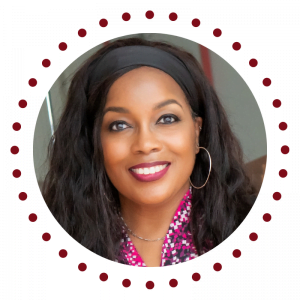
Want Karan to be Your Podcast Guest?
- Blended Workforces & the Gig Economy
- Critical Execution Tactics of High-performing Leaders
- Entrepreneurism & Leading Your Business
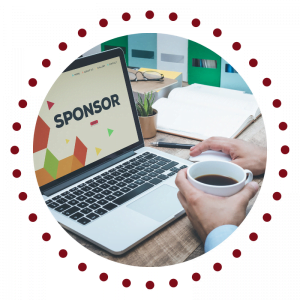
Want to be a Podcast Sponsor?
All sponsorships come with a featured spot on show notes pages.
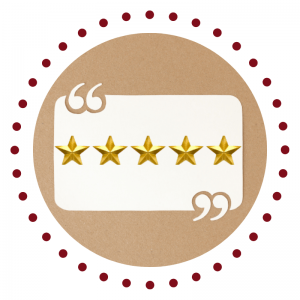
Like the Show? Please Leave a Review
If you like the show, it would mean the world to her if you left a quick review.
Your word is golden, so a HUGE thank you in advance!

#KeepInTouch
via our podcast alerts
Subscribe now to discover why thousands of monthly listeners who are passionate about doing their best work prioritize time each week to listen to the Blended Workforces @Work podcast.
#AboutSDL
#WhereToFindUs
MAILING
4480-H South Cobb Drive
PMB 219
Smyrna, GA 30080
PHYSICAL
2121 NewMarket Parkway
Ste. 108
Marietta, GA 30067
#ContactOptions
Customer Service Email:
service@shockinglydifferent.com
Call or Text:
770-384-1103
#Office Hours
MON-FRI
8:30 AM – 6:30 PM
Weekends By Appointment

